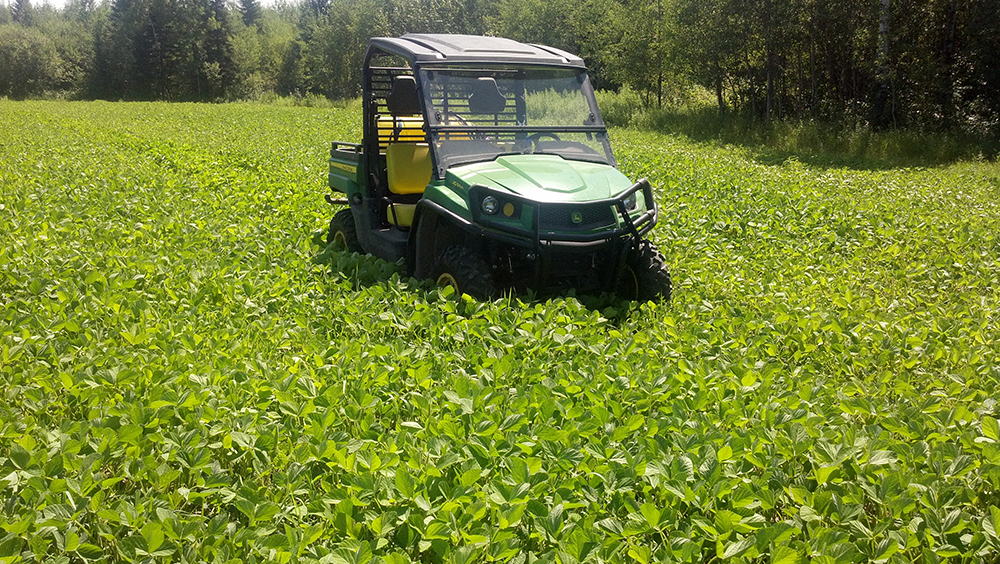Jims Blog

Looking Back At Food Plots What Works And What...Not So Much
- Jim
- Jim's Blog
- Hits: 4418
Looking back at the years of food plots I’ve built and planted, I realized I have had a considerable amount of experience to be able to look back and realize what works and what has not been so productive. Over the years, there have been a lot of ideas and or, thoughts of, what you should do or what you should be doing. Many of these “ideas” or “plans” are simply to fill pages in magazines or articles on social media. If there weren’t new and exciting things to look at, people wouldn’t be buying magazines or reading articles on the internet from these “so called experts.”
Looking back at the years of food plots I’ve built and planted, I realized I have had a considerable amount of experience to be able to look back and realize what works and what has not been so productive. Over the years, there have been a lot of ideas and or, thoughts of, what you should do or what you should be doing. Many of these “ideas” or “plans” are simply to fill pages in magazines or articles on social media. If there weren’t new and exciting things to look at, people wouldn’t be buying magazines or reading articles on the internet from these “so called experts.” Who wants to listen to the same old mundane methods that actually work? If it’s on the internet or in print, it must be true! Sure, it’s fun to try new things, but some of these new marvels are not always very reliable. For example, throwing your seed on untilled ground or, my favorite, the liquid fertilizers and liquid lime. “Put a pint of this on your 1-acre food plot and magic happens.” Really? Simply put, if this was so great, why isn’t it setting the agricultural world on fire? It isn’t, and in reality, it would take so many gallons of this per acre that it never would be the economic and labor free product they claim it to be. The same seed company that goes to great lengths to explain how important it is to fertilize, lime and till the soil so that the seed has perfect seed to soil contact, turns around and says, “Just throw this seed on the ground and it grows like magic.” It’s all just advertising to sell their product. Think about it. There are many people out there nowadays specializing in telling you how to manage your hunting lands. I’m not saying all of them, but a lot of them, are just talking the talk. Just make sure they really do know what they’re talking about. One of the surefire ways I have found to be true about these so called “experts” is food plot locations. I have seen it where, on the map that they have made for you they located a food plot in the middle of a cattail swamp. It seems they never really walked the property. They just took a map off of the internet or simply didn’t know what they are talking about. They’re just making you an attractive map to charge you a large amount of money. Another good one is telling you to plant certain plants that would never grow there or should never be planted in that soil type. It simply sounds good and makes them sound professional, but it really won’t work. Another thing to consider is cost. Is it really cost effective or saving you money? You still have to clear, or semi-clear, an area which costs money, fertilizing which costs money, seeding which costs money, and then getting poor to mediocre results, which wastes money. If you’re going to spend time and money on a project like this, it would be worth it in the long run to do a little more tried and true farming practices, just like farmers do. Hence, all of the deer and large bucks in farm areas. There has to be something they are doing right. Basically, don’t get caught up in all of the hype out there. A lot of the new seed, magic fertilizers and so called “expert ideas” are what I like to refer to as the fishing tackle of food plots. After all, most fishing tackle is created to hook the fisherman, not the fish.
